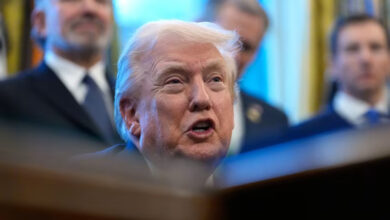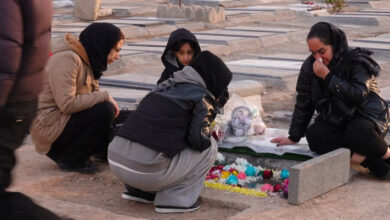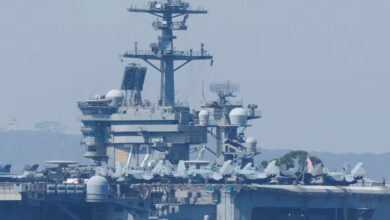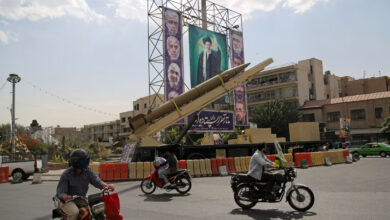North Korea and Iran appear to have been regularly exchanging ballistic missile technology in violation of UN sanctions, according to a confidential UN report obtained by Reuters on Saturday.
The report said the illicit technology transfers had "trans-shipment through a neighboring third country." That country was China, several diplomats told Reuters on condition of anonymity.
The report will likely deepen suspicions about North Korean cooperation with Iran and heighten concerns about China's commitment to enforcing the sanctions against Tehran and Pyongyang due to their nuclear programs, envoys told Reuters.
The report was submitted on Friday to the Security Council by a UN Panel of Experts, a group that monitors compliance with UN sanctions imposed on Pyongyang after it conducted two nuclear tests in 2006 and 2009.
The UN sanctions included a ban on trade in nuclear and missile technology with North Korea, as well as an arms embargo. They also banned trade with a number of North Korean firms and called for asset freezes and travel bans on some North Korean individuals.
"Prohibited ballistic missile-related items are suspected to have been transferred between the Democratic People's Republic of Korea (North Korea) and the Islamic Republic of Iran on regular scheduled flights of Air Koryo and Iran Air," the report said.
"For the shipment of cargo, like arms and related materiel, whose illicit nature would become apparent on any cursory physical inspection, (North) Korea seems to prefer chartered cargo flights," it said.
It added that the aircraft tended to fly "from or to air cargo hubs which lack the kind of monitoring and security to which passenger terminals and flights are now subject."
Several Security Council diplomats said China was unhappy about the report and would likely not agree to release it to the public. At the moment, only the 15 council members have official access to the document.
One of the experts on the panel is from China and diplomats said he never endorsed the report, which was delivered to the Security Council on Friday. His refusal to endorse the report delayed its submission for around 24 hours, diplomats said.
SIMILAR WARHEADS
Beijing has prevented the publication of expert panel reports on North Korea and Sudan in the past. Earlier this week, Russia took similar steps to suppress an equally damning U.N. expert panel report on Iran.
The spokesman for China's UN mission was not available for comment.
Further evidence of Iran's cooperation with North Korea on missile technology came during a military parade in October 2010, the report said, when North Korea displayed a new warhead for its Nodong missile.
The warhead had "a strong design similarity with the Iranian Shahab-3 triconic warhead."
The expert panel said there appeared to be no compelling evidence Myanmar had been developing a secret nuclear program with the help of North Korea, an allegation that had been raised previously by the group.
But it did not dismiss the allegations and suggested "extreme caution" might be needed to prevent North Korean-Myanmar cooperation from becoming proliferation.
The allegations are due partly to attempts by the former Burma to acquire items that can be used in a nuclear program.
"While acknowledging the possibility that Myanmar was the end user of this dual-use equipment, several experts also raised the possibility that it was serving as a trans-shipment point for delivery to (North Korea)," the report said.
The report said the possibility of exports of weapons-grade nuclear material from North Korea or nuclear technology to other countries remained a concern and presented "new challenges to international non-proliferation efforts."
US, Israeli and European governments have said that North Korea was helping Syria build a nuclear reactor that Israel destroyed in 2007. Damascus denies the charge, which is being investigated by the UN nuclear watchdog.
In its report, the panel said North Korea's uranium enrichment problem, which Pyongyang says is for civilian purposes, was "primarily for military purposes."
It added that North Korea "should be compelled to abandon its uranium enrichment program and that all aspects of the program should be placed under international monitoring."
The report also said there were concerns about safety at North Korea's Yongbyon nuclear complex. It said "safety issues should be discussed an integral part of the denuclearization of (North Korea)."
It added that "reckless decommissioning or dismantlement at Yongbyon could cause an environmental disaster."




